A look back around the world at the year in gambling in 2023
Around the globe, gambling is a big industry with changes in law and offering varying from continent to continent and country to country. I'll look at five huge stories that shaped gambling around the world in 2023 and beyond.
5. UAE Regulating Gambling
One of the more surprising stories of 2023 occurred when the UAE appointed a gambling regulator for the region. The Muslim country has laws that makes gambling and alcohol illegal since it is forbidden by the Quran, but with the makeup of the UAE changing (currently about 60% of the country is Islamic, whereas 10 years ago it was close to 80%), the country has been looking at other ways to diversify away from oil via increased tourism. So, in 2023 the UAE established a new federal body, called the General Commercial Gaming Regulatory Authority (GCGRA), that would create a “regulatory framework for a national lottery and commercial gaming,” according to Emirati state media WAM. Once gambling is approved it would be available to tourists and the non-Muslim population in the UAE. Jim Murren, the former CEO of MGM Resorts International was hired on as chair of the board of directors for the GCGRA and Kevin Mullally, the former head of the Missouri Gaming Commission has been hired on as the CEO. Murren has worked with Dubai before when developing City Center in Las Vegas as a partnership between MGM and Dubai World that comprised the Aria, Vdara and Cosmopolitan hotels along with shopping, a convention center and other amenities.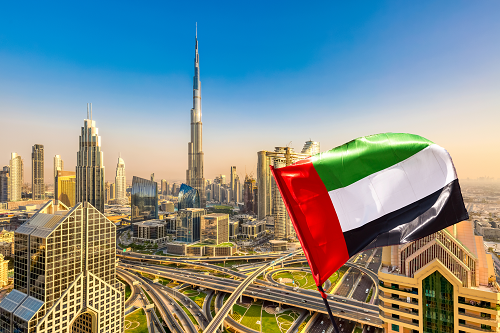 In 2022, Wynn Resorts signed an agreement to build a resort in Ras Al Khaimah, which is about an hour’s drive from Dubai. At the time there was no commitment by the UAE for a gambling space at the resort, but the announcement by GCGRA makes it clear that the resort will include gambling. Caesars also currently operates a hotel without gambling in Dubai and would undoubtedly like to add a casino, and many cruise ships are apparently interested in gambling, if legalized.
In 2022, Wynn Resorts signed an agreement to build a resort in Ras Al Khaimah, which is about an hour’s drive from Dubai. At the time there was no commitment by the UAE for a gambling space at the resort, but the announcement by GCGRA makes it clear that the resort will include gambling. Caesars also currently operates a hotel without gambling in Dubai and would undoubtedly like to add a casino, and many cruise ships are apparently interested in gambling, if legalized.
While the types of gambling and who will be able to gamble have not been finalized or likely even discussed, it appears the tax rate on gambling has been addressed. The plan includes a two-tier tax system with a 25% tax for mass market gambling and 8% for premium gambling. Sadly, there is no information on what constitutes mass market gambling and what premium gambling is, although many analysts seem to believe the premium gambling would entail something like what is available in Monte Carlo in private rooms and mass gambling would be slots and possibly table games.
Horse racing is currently legal and operating in the UAE and the Dubai World Cup is the world’s richest race with a purse of $12 million USD. But, gambling at the track is illegal, although gambling companies worldwide, as well as horse racing authorities outside of the UAE, offer wagering on the races. It is believed the UAE is given a commission from those offering Dubai horse racing to help pay for purses and track upkeep. There are also many reports on social media of attendees at the races who bet online with the gambling operators and the authorities have a 3 monkeys approach of hear no evil, see no evil, speak no evil attitude towards it. But having a law in place that is not enforced against non-Muslim residents is nothing new. During the 2022 World Cup in Qatar, there were many pictures of tourists obtaining and drinking alcohol at the event, despite alcohol being illegal in that country, and non-Muslims who work or visit there say they have no problem finding places willing to sell alcohol and even pork products to them and they only need to provide proof that they are not UAE nationals to get the products.
Currently, if caught gambling in Dubai a resident can face up to two years in prison and/or a 12,000 Euro fine. This new regulator makes it clear that the country is looking to change and whether gambling will be only open to tourists and/or non-Muslim residents remains to be seen.
4. Regulations to legalize iGaming in Brazil
Until 2018 Brazil was one of only two Latin American countries to not have legal casinos or sports betting. Gambling proliferated in the country until 1941 when The Criminal Contravention Act was passed that disallowed all forms of gambling except horse racing and lotteries. Horse racing was only legal at the government-owned racetracks and the lotteries were run by a state-owned bank. In 2008 there were calls by some legislators to legalize iGaming to offset the billions of dollars being bet with outside gambling companies, but it was rejected. Instead, the country went through something that was eerily similar to the situation that created the UIGEA in the United States. One government official tried to introduce a bill to ban online gambling by Brazilian citizens with fines and imprisonment on the table, but it failed, as the government didn’t want to punish their own citizens for a relatively harmless activity. So, in 2011 the country passed a law disallowing the use of credit and debit cards for all gambling and issued rules to penalize any banks that allowed these transactions to go through, although gambling itself was not against the law.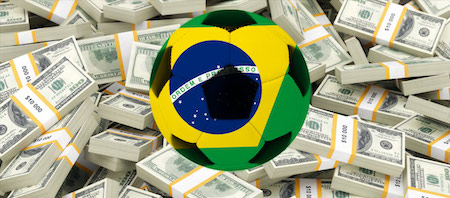 In 2018, realizing that this new law was not stopping citizens from getting funds to the online gambling companies, the idea of legalizing and regulating online gambling raised its head again. In that year, the Brazilian Congress passed a bill legalizing fixed-odds sports betting and started looking into the possible legalization of land-based and online casinos and bingo halls, as well as having lotteries removed from the state-run monopoly. Poker is absolutely forbidden in Brazil in any form. This proposed law appeared to be in jeopardy when Jair Bolsonaro was elected as President of Brazil in 2019, as his win was in large part thanks to the Evangelical churches there which vehemently opposed gambling. But the bill received new life when Bolsonaro was defeated by Luiz Lula da Silva in the 2022 Brazilian election, and da Silva was not beholden to the Evangelical leaders.
In 2018, realizing that this new law was not stopping citizens from getting funds to the online gambling companies, the idea of legalizing and regulating online gambling raised its head again. In that year, the Brazilian Congress passed a bill legalizing fixed-odds sports betting and started looking into the possible legalization of land-based and online casinos and bingo halls, as well as having lotteries removed from the state-run monopoly. Poker is absolutely forbidden in Brazil in any form. This proposed law appeared to be in jeopardy when Jair Bolsonaro was elected as President of Brazil in 2019, as his win was in large part thanks to the Evangelical churches there which vehemently opposed gambling. But the bill received new life when Bolsonaro was defeated by Luiz Lula da Silva in the 2022 Brazilian election, and da Silva was not beholden to the Evangelical leaders.
Although legal, there is no current licensing scheme for fixed-odds sports betting in Brazil. But that changed in 2023 after the Brazilian Chamber of Deputies approved a bill to legalize and regulate all forms of gambling, including sports betting and iGaming. The bill originally went to the Senate to approve but they wanted iGaming removed. The Chamber of Deputies, however, had final say and added it back. Under the rules, licensees that offer fixed-odds sports betting will be charged a one-time fee of 30 million BRL, about $6 million USD, that is good for five years. This grants those with licenses the ability to operate up to five different brands. Any operator must be partnered with a Brazilian company that includes a Brazilian national on the board who owns at least 20% of the shares. The rules also require stringent cybersecurity measures in place approved by the Ministry of Finance. Licensed operators will be allowed to advertise, while unlicensed operators will be banned from advertising. Bonuses and promotions are disallowed. Sports bets will be taxed at a rate of 12% of Gross Gambling Revenue (GGR) with 36% of that money going towards sports, 28% towards tourism, 14% towards public safety, 10% towards education and social security and the remaining 2% directed towards health and other initiatives. Bettors will have to pay a 15% tax on net winnings as part of their yearly tax obligations. Currently, it is uncertain if online casinos will be taxed at the same rate, although many feel that the tax on iCasino wagering will be higher once the rules are finalized.
So, one of the most restrictive countries in the world is now legalizing and regulating sports betting and internet gambling, meaning that Ecuador is the only South American country without any form of legal gambling. According to reports, over 125 companies are seeking a license in Brazil and with a population of over 200 million people, a storied history in soccer and other sports, and an appetite for betting among the populace, Brazil is set to be among the biggest gambling economies in the world.
3. Japan’s final agreement with MGM and the beginning of construction on the Osaka resort casino
When Japan announced it was allowing Japanese cities to develop resort casinos, all the major casino operators came running with fistfuls of dollars ready to get the winning bid in what they perceived would be a gold mine. Three cities, Osaka, Yokohama and Nagasaki as well as Wakayama expressed interest, although Osaka was the biggest draw of the lot. It appeared MGM’s offer of $12 billion for the Osaka casino was going to win out but then COVID-19 hit. It soon became clear that the 2025 original build date (in time for the World Expo in Osaka) was not going to be possible and with revenue hits for all the casinos due to the global pandemic, the bid had to be lowered.  MGM made a low-ball counteroffer, which was rejected, while Wakayma said it was ending its bid and Yokohama withdrew their offer to host a casino after electing an anti-gambling mayor and after a major businessman threatened to kill himself if the city constructed a casino. Nagasaki also decided to hold off the process for now.
MGM made a low-ball counteroffer, which was rejected, while Wakayma said it was ending its bid and Yokohama withdrew their offer to host a casino after electing an anti-gambling mayor and after a major businessman threatened to kill himself if the city constructed a casino. Nagasaki also decided to hold off the process for now.
So, in 2023 MGM made an offer of $8.1 billion for the Osaka casino contingent upon being able to raise funds from other sources. In September, MGM announced it arrived at an agreement with Orix Corporation, a Japanese diversified financial services group, to partner in the building of the resort casino on Yumehsima, an artificial island on Osaka Bay where they can have hotels, a casino, conference centre and entertainment venue, along with shopping. The plan is to have ferries carry most casino visitors from the Osaka mainland to the new resort casino, although other transportation opportunities will exist to reach the island. There was a short delay in the approval after a Japanese group called the “Society for Considering Gambling Addiction Problems” petitioned the Osaka government to disqualify MGM as a purchaser since two companies they purchased named Leo Vegas and Royal Panda offered online gambling for Japanese residents, counter to Japanese laws. But it appears the petition went nowhere and in December the groundbreaking took place and the first concrete was poured to start creating the new resort casino.
While the casino will not be ready for the World Expo, there is hope by MGM that they will have something to show at the Expo, including a model of what it will look like when finished and progress to date. MGM believes it could have the first facilities opened sometime in 2027 and the whole resort completed by 2030. It is notable that all parties have the option to leave the agreement if costs skyrocket, but that is not expected to happen.
So, it is now all systems go and what was a concern for some time as to whether a resort casino could actually be developed is now proceeding with completion expected within the next 6 years.
2. Macau’s return to approaching pre-pandemic revenue
One of the pressing questions entering 2023 was could Macau ever get back to its gambling revenues of old? Macau has been the largest gambling hub in the world with revenues and visits that put Las Vegas to shame. Macau’s biggest year was in 2013 when they had around 362 billion patacas (around $45 billion USD) and in 2019, the year before the pandemic, its revenues were about 292 billion patacas (around $36 billion USD). The decline from 2013 was thought to be mostly related to rules put in place by the Chinese government to limit the number of visits allowed by Chinese nationals, as well as a crackdown on junkets. But nothing could have prepared the country for what would happen in 2020.
The Covid-19 virus started spreading early on in China which resulted in Macau shutting down operations for two weeks in February of that year and later they put in measures for social distancing, covid testing and mandatory quarantines for visitors residing outside of Macau.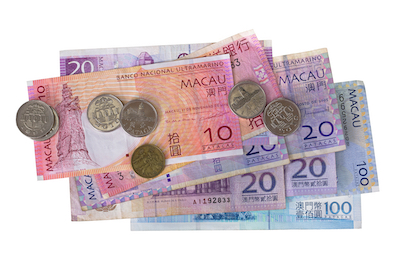 The result was that gambling revenue for 2020 fell to just under 61 billion patacas (about $758 million USD), which meant casinos were actually losing money after paying staff and fixed costs on their facilities. 2021 saw the vaccine introduced but the measures were still stringent, leading to revenues of only about 87 billion patacas (just over a billion USD) and 2022 was the worst year yet, since on top of all the previous measures and vaccine mandates, China instituted new rules which saw police from China oversee the operations at casinos. As a result, Macau only netted around 43 billion patacas or less than $550 million USD.
The result was that gambling revenue for 2020 fell to just under 61 billion patacas (about $758 million USD), which meant casinos were actually losing money after paying staff and fixed costs on their facilities. 2021 saw the vaccine introduced but the measures were still stringent, leading to revenues of only about 87 billion patacas (just over a billion USD) and 2022 was the worst year yet, since on top of all the previous measures and vaccine mandates, China instituted new rules which saw police from China oversee the operations at casinos. As a result, Macau only netted around 43 billion patacas or less than $550 million USD.
This caused a great deal of concern among casinos, wondering about the future of the industry there. This question had to be seriously considered as Macau was set to decide whether to renew licenses, for how long, and what was going to be required of those licensees, aside from paying taxes. That was answered in the middle of 2022 when the Macau government agreed to renew all current licensees for 10 years, and all operators agreed to provide funds for cultural pursuits in Macau, including statues and the like. 2022 saw an easing of restrictions at the end of the year and more visitors returning, signalling that 2023 could be a turnaround year and the decision to renew their licenses was a smart move.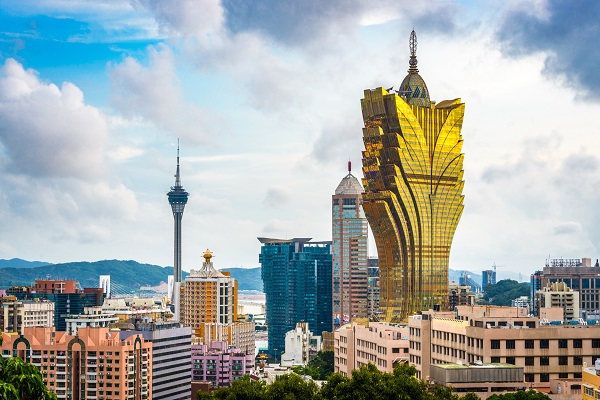 In January of 2023 Macau lifted its restrictions on foreign visits eliminating quarantines and by March all other restrictions were lifted as well. Revenues started off slowly in 2023, but rose every month since, resulting in revenue for the year of 183 billion patacas (around $23 billion USD) , almost 80% higher than the projected revenue heading into the year. And, in December 2023, revenue was over 430% higher than in December 2022, signalling that bettors are anxious to return. Macau should approach pre-pandemic revenues in 2024. As always, baccarat accounted for over 80% of gambling play and revenue.
In January of 2023 Macau lifted its restrictions on foreign visits eliminating quarantines and by March all other restrictions were lifted as well. Revenues started off slowly in 2023, but rose every month since, resulting in revenue for the year of 183 billion patacas (around $23 billion USD) , almost 80% higher than the projected revenue heading into the year. And, in December 2023, revenue was over 430% higher than in December 2022, signalling that bettors are anxious to return. Macau should approach pre-pandemic revenues in 2024. As always, baccarat accounted for over 80% of gambling play and revenue.
Thus, it appears the threats from the Chinese government to provide oversight of gambling was not a major disincentive for Chinese bettors or casinos and the lost junket revenue has not had a major effect either. Chinese nationals just want to gamble again and are returning in droves. This large increase in revenues resulted in shares of LVSC rising dramatically.
The return to normal in the world’s largest gambling hub, makes Macau’s revenues the number two story of 2023.
1. Major proposed changes to Italy’s gaming regulations and tax system
Gambling has had a long tradition in Italy and in the early 1900s Italy implemented rules to permit a wide range of gambling overseen by the Autonomous Association of State Monopolies (AAMS). This included horse racing, land-based casinos and sports betting. Due to calls from the EU to open up its market to competitors, the AAMS implemented a regulated licensing regime in 2006 whereby operators could offer all gambling products, as well as poker, in exchange for paying a license fee and taxes. The rates are 4.5% of GGR for sports bets, 20% of gross profits for casino wagering, 11% of GGR for bingo, 3% of buy-ins for poker and 18% of turnover for horse racing. The horse racing tax is to keep it in line with the Italian tote, which uses the money to pay horseplayers and purses. But, this only applied to land-based operations. 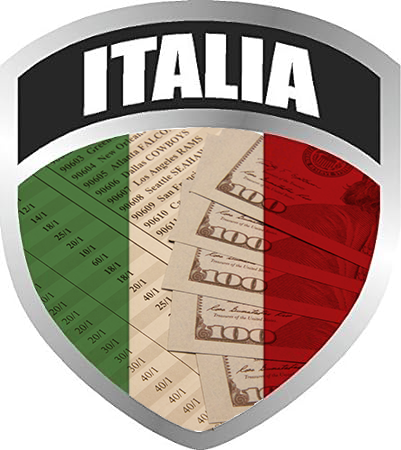 Online betting was only legal for sports and fixed-odds horse racing arranged by the Italian National Olympics Committee and the National Horsebreeders Enhancement Society. Foreign gambling sites were supposed to be blocked, although many Italian residents got around it via proxy servers.
Online betting was only legal for sports and fixed-odds horse racing arranged by the Italian National Olympics Committee and the National Horsebreeders Enhancement Society. Foreign gambling sites were supposed to be blocked, although many Italian residents got around it via proxy servers.
After calls by the EU to open its market to foreign competitors the country offered AAMS licenses which made gambling at those locations completely legal. In exchange for a 200,000-350,000 Euro fee, depending on the size of the operation and an agreement to pay tax at the same rates as mentioned previously, foreign operators could legally offer all products with AAMS guaranteed protection procedures. Companies that do not get an AAMS license are not technically illegal, but are discouraged and any complaints would not be handled by AAMS. Thus, all the major online casinos and sportsbooks got an AAMS license. At last count there were over 90 online operators in the Italian market.
Italy became known as one of the most liberal countries in Europe for gambling, but in 2023 the country stated it was concerned about underage and problem gambling, plus they didn’t feel they were making enough in taxes. So, in July the Italian legislature headed by the Finance Commission passed new rules that will turn Italy from one of the most liberal and tax friendly countries into one of the most stringent.
- Lowering of betting limits and maximum amounts won (i.e. limiting jackpots)
- A national register of bettors to identify and stop problem gambling
- Increased rules and requirements to operate a physical gambling business
- A ban on betting for any sports that involves participants under the age of 18, i.e. no betting on U18 soccer tournaments
- Forced closures of all land-based locations for at least 4 hours each day
The country began addressing concerns of problem and underage gambling by instituting a gambling ban on ads for sports betting during soccer games in 2021, which at the time led many to believe other rules were soon to follow. COVID-19 put a temporary halt to the reforms, but now they are being kicked into overdrive.
The rules also state a requirement for "certification of each device, with gradual transition, taking into account the amortization period of the investments made, to devices that allow gaming only from a remote environment, forming part of non-alterable gaming systems."
This rule is ambiguous, but most experts seem to believe it means that online slot machine wagering will be overseen by the AAMS monopoly so that they can ensure the integrity of the product. And the online companies themselves will be at the whim of the AAMS for what slots can be offered, what the payback amount will be and what the limits will be.
As well, gambling machines (VLT terminals) that are present everywhere in Italy are going to be removed from any venues close to schools, pawn shops, hospitals and locations with an ATM, including banks. The distance it must be away from these businesses is 500 feet in rural communities and 300 feet in urban communities.
The new rules are also proposing a 35-fold increase in the cost of a gambling license, which the EU is looking into, saying it could violate EU rules and many gambling companies say will force them to leave the Italian market. The current average cost of a license is 200,000 Euros, but the plan is to increase it to 7 million Euros. An EU gaming lobby group said that this increase would lower the number of operators to around twenty, meaning that only the biggest companies like Bet365, William Hill or Ladbrokes could afford to operate there.
So, Italy which was one of the most liberal countries for gambling is putting in measures that will make it far less competitive and revert to they days when there was a complete oversight by the state monopoly. This major change in philosophy towards gambling makes it the number one global gambling story of 2023.
Check out Hartley's Top 10 Gambling Stories in North America in 2023.
Read insights from Hartley Henderson every week here at OSGA and check out Hartley's RUMOR MILL!








































